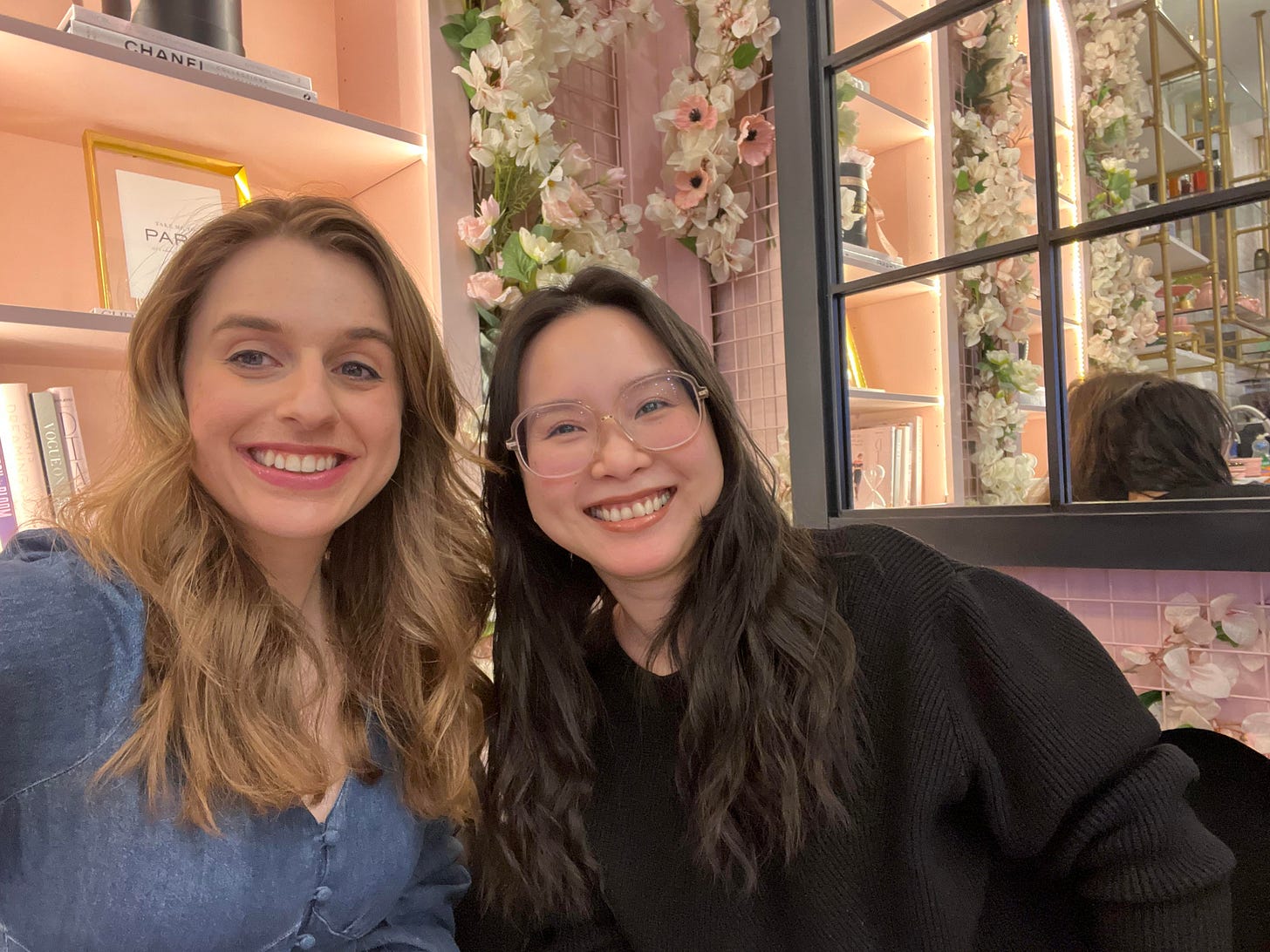Friend #27 - Jessica
My therapist friend
I met Jessica through a mutual connection earlier this year. I was looking for someone who could help me understand the parts of loneliness that a therapist could best explain. Over email, Jessica wrote, “As I was reading your about page, it made me reflect on my own experience of feeling a sense of loneliness culturally in my childhood.”
Since then we’ve chatted on Zoom and spoken on CBC radio together. A few weeks ago, we met in person for coffee.
Jessica was born in Jamaica to Chinese parents. “In 1979, when China announced the one-child policy, everyone wanted to leave. My parents weren’t well off and my mom only graduated grade six. My dad was leaving for Jamaica so they barely knew each other but she followed him there,” she says.
Her parents owned a convenience store and her dad’s uncle operated a restaurant. These are common businesses for Chinese people to run in Jamaica.
Together with her two younger sisters, Jessica enjoyed the island upbringing for the most part—the great weather, and beaches.
“My sisters and I are very close,” she says. “They were the only people who were living the same experiences as me. In a class of 40, there were maybe one or two Asians in Jamaica.”
Jessica grew up in her parents’ shop. She cleaned, helped with customers, and understood early on that if you want certain things in life, you must work for them. “The customers were also harsh and racist and would say things like ‘Go back to your country’ or tease me for my Chinese accent when I don’t have one,” she says. “Anytime I went out in public to somewhere like the mall, I would be prepared for racist comments.”
In the ninth grade, Jessica had the opportunity to immigrate and start high school in Canada. She lived with her aunt and uncle and in her own words was the family's “guinea pig.” She felt out of her comfort zone in Toronto. “The black community in Toronto is much different than the one in Jamaica. I lived in an area that in Toronto is considered poor but it was a beautiful community in comparison to Jamaica,” Jessica says.
Making friends in Canada, on the other hand, proved to be less simple. She says, “In Jamaica, we don’t hide face so adjusting to the social etiquette in Canada was tough. My sister really struggled because she wasn’t used to filtering her way of speech and her classmates thought she was rude and bullying them.”
Jessica met her partner in high school and the majority of her friends are from his circle. She is exceptionally gifted at listening and after working as an office administrator at a school, Jessica decided to pursue psychotherapy.
The way she views friendship is still greatly influenced by her childhood. “The community support in Jamaica is strong”, she tells me. “I had never experienced cliques until I moved to Canada.”
In twelfth grade when Jessica switched schools, she described her shock to see the cafeteria separated by cultural background. “I thought ‘Where do I sit?’” she says.
“In high school, I went to [the Asian shopping mall] Pacific Mall, with a friend who is black and I felt like we were being judged by shoppers. In Jamaica, it was very normal to see an Asian girl and a black girl together,” says Jessica.
Throughout our conversation, Jessica makes it clear that the people in Jamaica are beautiful and inclusive but that she wishes the Chinese community felt safer on the Island because the Asian community has been there for centuries.
“We delight in the beauty of the butterfly, but rarely admit the changes it has gone through to achieve that beauty.”
―Maya Angelou
Internet Browsing


